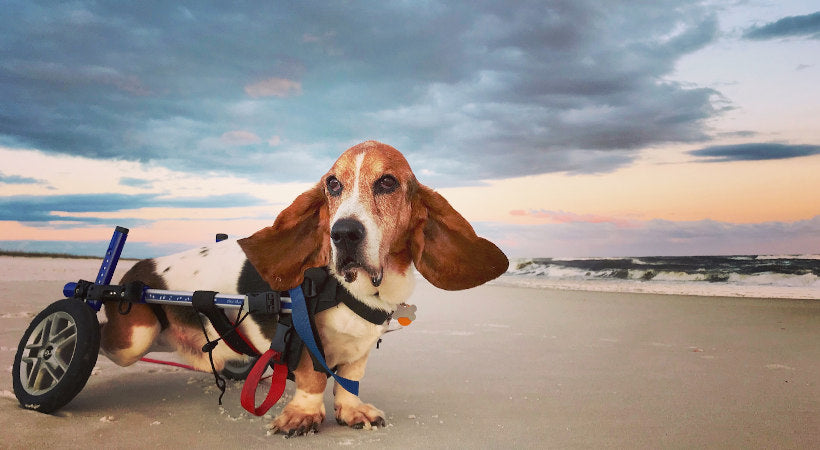What Can I Give My Dog for Joint Pain? (Remedies & Home Care Guide)

What to Expect as Your Dog Ages
There are many changes that you can expect in your dog as they age. Most dogs become seniors around the age of seven years old, larger breeds may age a little faster. As your pet gets older, they’ll begin to get white around the muzzle, walks may become shorter, and naps more frequent. As a pet parent, it’s important to know when these changes are a natural part of the aging process and when they may be signs of a more serious condition.
6 Signs of Aging in Senior Dogs
1. Age Related Diseases
Degenerative diseases commonly occur among older pets. Age related diseases can affect your dog’s cognitive or neural functions as well as affect your pet’s mobility. Depending on the condition your pet’s symptoms can be managed but may not be cured. Risks of cancer, heart, kidney and liver problems are also higher in senior pets. Any changes or noticeable declines in your pet’s abilities or behavior should be taken seriously. Always consult with your Vet, early detection and treatment are vital.
Not all physical changes are related to disease. Many elderly pets may begin to develop lipomas or fatty lumps under their skin. Although mostly harmless, any lump or bump should be checked by your Vet to ensure they’re not cancerous.
2. Canine Arthritis and Joint Pain
Arthritis is the most common condition affecting senior pets. Just like in humans, as your dog gets older their joints will stiffen and ache. Dog’s are very good at hiding pain symptoms and the only noticeable changes may be slowing down or tiring more quickly. Some pets will show a hesitancy to use the stairs or reluctance to play. On rainy or cold days joint pain may worsen or become more noticeable.
It's important to understand how canine arthritis impacts your dog and affects them. Behavioral changes, like aggression or unprovoked growling may be signs of pain. Joint supplements can help to prevent and lessen the severity of your pet’s joint pain. If your dog’s arthritis has advanced to point of mobility loss, a dog wheelchair can help your dog to stay active and supported. Age related mobility loss typically effects your dog's back legs and can range from mild to paralysis.
3. Loss of Strength and Balance
Noticeable changes in your dog’s mobility is common and often begins with your dog struggling to stand up. Muscle loss in the rear leg makes it challenging for an aging pet to get off the ground as quickly or as easily as they could when they were younger. Improving canine mobility is easier than you think and there are simple ways that you can help your dog. A simple, rear support leash can be used to provide the extra boost your dog needs to stand up.
4. Changes in Your Dog's Senses
Aging pets may even show signs of vision and hearing loss. Eyesight and hearing can slowly degrade, changes may be barely noticeable while other pets may become blind or deaf. Changes in senses can occur very slowly.
Changes in your dog’s senses may begin with a slower response rate when you call your dog’s name, signs of confusion or becoming easily startled. If these changes in behavior become noticeable, speak with your Veterinarian about a treatment plan. In many cases pet’s experiencing vision and hearing loss adjust very easily and need only a little help from you to live a completely normal life.
5. Weight Loss or Gain in Aging Pets
Your dog’s metabolism changes as they get older. Some dogs become thin and experience muscle loss as they age whereas others will gain weight as they become less active. Although weight fluctuation is normal, a senior pet’s dietary needs may change. In order to help your pet live a long, happy life they may need to change their diet. Your vet can help your pet find the perfect nutritional balance.
6. Incontinence
As your dog’s body changes there are often changes in their ability to “hold it”. Urinary “leaks” can be managed simply with a male wrap or disposable diaper. Or your pet may need to be taken out with more frequency. Older pets can forget that they need to go out or find it harder to get up quickly enough to get outside. Encourage your elderly pets to go outside more often to avoid unnecessary accidents. Changes in incontinence and bowel function may also be attributed to a more severe medical concern and should be assessed by a pet care professional.










